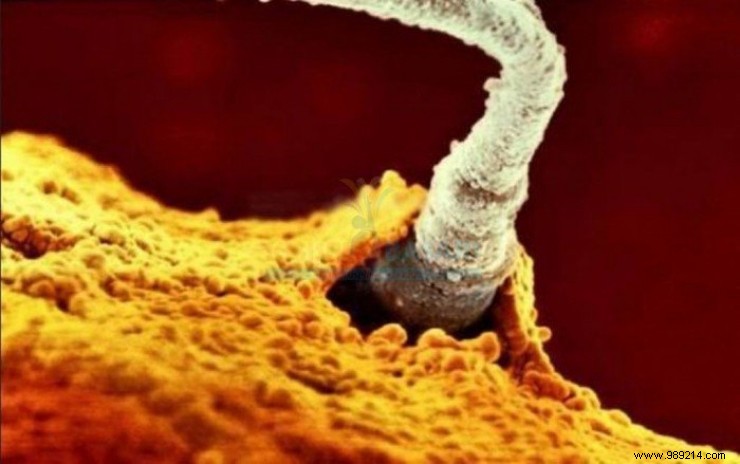Eggs released by women appear to be able to favor certain sperm over others in an effort to fertilize them, a fascinating study reveals. And it is not necessarily that of their partner.
Evolutionarily, mate choice is often influenced by primitive instincts. Males, for example, seem to be able to detect an ovulating female simply by smelling her, while females seem to prefer the scent of a male with different genes, which could give their offspring a boost. in the evolutionary scale.
A fascinating new study reveals that these chemical preferences persist even after sex.
Human eggs use chemical signals to attract sperm. As part of this work, researchers from the University of Stockholm (Sweden), the NHS Foundation Trust and the University of Manchester (UK), wanted to know if the follicular fluids – which surround the eggs and contain chemoattractant receptors responsible for "seducing" sperm - different women attracted sperm from some men more than others.
With this in mind, follicular fluid and semen samples were obtained from couples wishing to undergo assisted reproduction treatment (IVF). The researchers then studied the interactions between different sperm and different follicular fluids.
It emerged from this study, published in the Proceedings of the Royal Society B. , that eggs may actually show a preference for some people's sperm over others .
"One woman's follicular fluid was more effective at attracting sperm from a man, while another woman's follicular fluid was more effective at attract another man's sperm “, explains Professor Fitzpatrick, at the origin of this research.
Furthermore, it would seem that the egg does not "always agree" with women's mate choice. Researchers have indeed discovered that certain eggs attract more sperm from an unknown man , to the detriment of those released by their partner.

According to the researcher, sperm have only one purpose:to fertilize eggs. It is therefore not logical to imagine that the latter are selective . Eggs, on the other hand, could favor some sperm over others if the latter appear genetically compatible, for example.
“The idea that eggs choose sperm is really new in human fertility said Daniel Brison, scientific director of the department of reproductive medicine at Saint Marys Hospital, who co-led the study. Better understanding how eggs and sperm interact will advance fertility treatments and may eventually help us understand some of the currently unexplained causes of infertility in couples .
Indeed, in view of this study, it appears that follicular fluid gives women an additional chance – long after they have chosen their partner – to limit the number of spermatozoa who will then come and try their luck.
Source